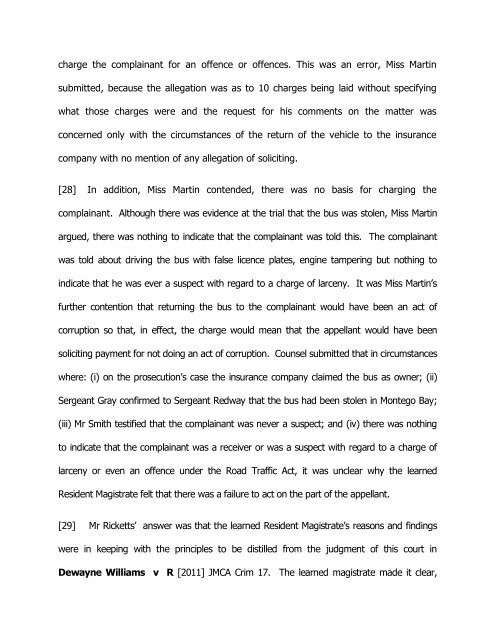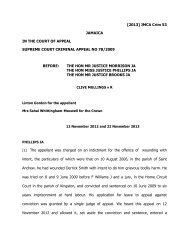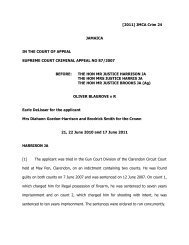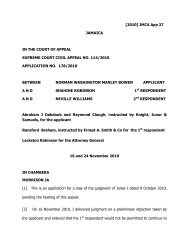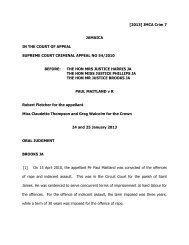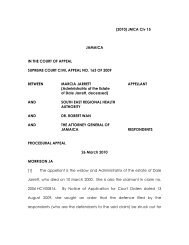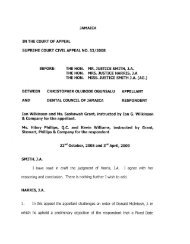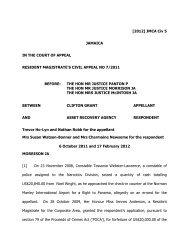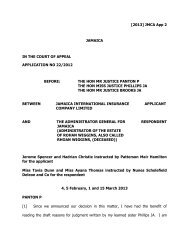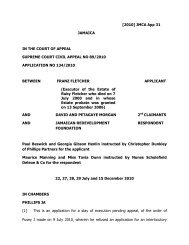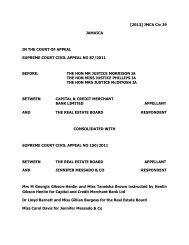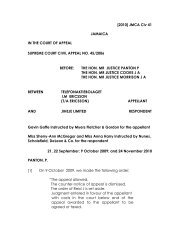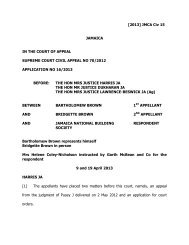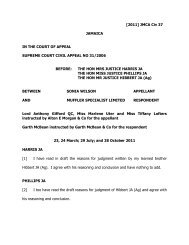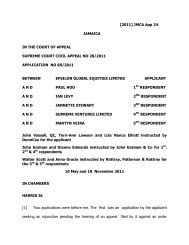Smith (Elorda) & Goulbourne (Everton) v R.pdf - The Court of Appeal
Smith (Elorda) & Goulbourne (Everton) v R.pdf - The Court of Appeal
Smith (Elorda) & Goulbourne (Everton) v R.pdf - The Court of Appeal
You also want an ePaper? Increase the reach of your titles
YUMPU automatically turns print PDFs into web optimized ePapers that Google loves.
charge the complainant for an <strong>of</strong>fence or <strong>of</strong>fences. This was an error, Miss Martinsubmitted, because the allegation was as to 10 charges being laid without specifyingwhat those charges were and the request for his comments on the matter wasconcerned only with the circumstances <strong>of</strong> the return <strong>of</strong> the vehicle to the insurancecompany with no mention <strong>of</strong> any allegation <strong>of</strong> soliciting.[28] In addition, Miss Martin contended, there was no basis for charging thecomplainant. Although there was evidence at the trial that the bus was stolen, Miss Martinargued, there was nothing to indicate that the complainant was told this. <strong>The</strong> complainantwas told about driving the bus with false licence plates, engine tampering but nothing toindicate that he was ever a suspect with regard to a charge <strong>of</strong> larceny. It was Miss Martin’sfurther contention that returning the bus to the complainant would have been an act <strong>of</strong>corruption so that, in effect, the charge would mean that the appellant would have beensoliciting payment for not doing an act <strong>of</strong> corruption. Counsel submitted that in circumstanceswhere: (i) on the prosecution’s case the insurance company claimed the bus as owner; (ii)Sergeant Gray confirmed to Sergeant Redway that the bus had been stolen in Montego Bay;(iii) Mr <strong>Smith</strong> testified that the complainant was never a suspect; and (iv) there was nothingto indicate that the complainant was a receiver or was a suspect with regard to a charge <strong>of</strong>larceny or even an <strong>of</strong>fence under the Road Traffic Act, it was unclear why the learnedResident Magistrate felt that there was a failure to act on the part <strong>of</strong> the appellant.[29] Mr Ricketts’ answer was that the learned Resident Magistrate’s reasons and findingswere in keeping with the principles to be distilled from the judgment <strong>of</strong> this court inDewayne Williams v R [2011] JMCA Crim 17. <strong>The</strong> learned magistrate made it clear,


